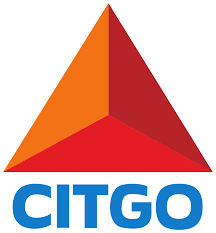 [1]The following is a guest post from Timothy O’Toole [2] and Brian Fleming [3], Members at Miller & Chevalier Chartered. The post has not been translated into Spanish or Portuguese.
[1]The following is a guest post from Timothy O’Toole [2] and Brian Fleming [3], Members at Miller & Chevalier Chartered. The post has not been translated into Spanish or Portuguese.
In the Fall of 2016, Venezuela’s state oil company, Petroleos de Venezuela, S.A. (PDVSA), attempted to ease its short-term debt payment crunch by offering to swap $7.1 billion of debt scheduled to mature in 2017 for a new 2020 bond. The swap worked as its new 2020 bond had two key selling points: (1) a coupon of 8.5 percent for the four year period until maturity, and (2) backing by 50.1 percent of shares in PDVSA’s U.S. refining unit, Citgo.
On May 21, 2018, President Trump issued Executive Order (E.O.) 13835 which, in pertinent part, prohibits U.S. persons (a term of art that includes U.S. citizens, U.S. permanent residents and companies organized under U.S. law) from being involved in the transfer by the Government of Venezuela (GOV) of any equity interest in any entity owned 50 percent or more by the GOV, as well as related transactions in the United States. E.O. 13835 obviously created a dilemma for owners of the 2020 bond: In the case of a default by Venezuela, the order prohibited U.S. person bond-holders from executing on their interest in Citgo. Worried about precisely this possibility, many of these bondholders contacted the U.S. regulator responsible for the Venezuela sanctions, the U.S. Treasury’s Office of Foreign Assets Control (OFAC), for guidance.
On July 19, 2018, OFAC provided that guidance by issuing General License No. 5. Under U.S. law, a general license provides general permission, without the need to seek authorization by filing a specific license application, to engage in certain conduct that would otherwise be prohibited by U.S. law. General License No. 5 does precisely that with regard to the 2020 bonds, providing in pertinent part that “all transactions related to, the provision of financing for, and other dealings in the Petroleos de Venezuela SA 2020 8.5 Percent Bond that would be prohibited by Subsection l(a)(iii) of Executive Order 13835 of May 21, 2018 (“Prohibiting Certain Additional Transactions With Respect to Venezuela”) (E.O. 13835) are authorized.”
At the same time it issued General License No. 5, OFAC explained clearly why it was taking this action, which is something of a rarity for OFAC. As stated in OFAC Frequently Asked Question (FAQ) 595, the President’s executive order, on its face, might have interfered with 2020 bondholders ability to execute on its rights in the Citgo shares serving as collateral in the event of a default by the Venezuelan government. In those circumstances, E.O. 13835 would have had the unintended result of actually protecting the Venezuelan government from recourse in the event it defaults on its bond obligations. General License No. 5 was designed to avoid this result, or in OFAC’s words:
Subsection 1(a)(iii) of E.O. 13835 hinders the Maduro regime’s ability to dispose of interests in entities owned 50 percent or more by the GOV at terms unfavorable to the Venezuelan people. Authorizing bondholders to enforce rights related to the PdVSA 2020 8.5 percent bond prevents the Maduro regime from using the EO to default on its bond obligations without consequence. In order to provide that authorization, OFAC is issuing General License 5, which removes E.O. 13835 as an obstacle to holders of the PdVSA 2020 8.5 percent bond gaining access to their collateral, and keeps sanctions pressure where it belongs – on the Maduro regime.
OFAC FAQ 595.
Although the purpose and basic application of the General License No. 5 appears straightforward, it also contains a notable exception, in cases where attempting to enforce the equity interest in the bonds might violate other U.S. sanctions provisions related to Venezuela. OFAC does not define any particular situations in which enforcement of bond-holder equity interests through execution on Citgo shares might occur, but nevertheless, it will be important for 2020 bondholders to tread carefully should they need to enforce their equity interests in Citgo in the case of default to ensure that other U.S. sanctions provisions are not implicated. Furthermore, OFAC FAQ 596 clarified that although E.O. 13835 does not prohibit parties from using a legal judgment against the Government of Venezuela to attach and execute against GOV assets, including vessels, properties, or financial assets, there are limitations on the scope of such attachments and a specific license from OFAC would likely be required for certain types of attachments—namely, those related to (i) debt owed to the Government of Venezuela (including accounts receivable) that post-dates E.O. 13835 and (ii) equity interests in any entity in which the Government of Venezuela has a 50 percent or greater ownership interest.
The big takeaway, however, is that U.S. person 2020 bondholders are far more secure in the their interests today than they were yesterday.
The opinions expressed in this post are those of the author in his or her individual capacity, and do not necessarily represent the views of anyone else, including the entities with which the author is affiliated, the author`s employers, other contributors, FCPAméricas, or its advertisers. The information in the FCPAméricas blog is intended for public discussion and educational purposes only. It is not intended to provide legal advice to its readers and does not create an attorney-client relationship. It does not seek to describe or convey the quality of legal services. FCPAméricas encourages readers to seek qualified legal counsel regarding anti-corruption laws or any other legal issue. FCPAméricas gives permission to link, post, distribute, or reference this article for any lawful purpose, provided attribution is made to the author and to FCPAméricas LLC.
© 2018 FCPAméricas, LLC